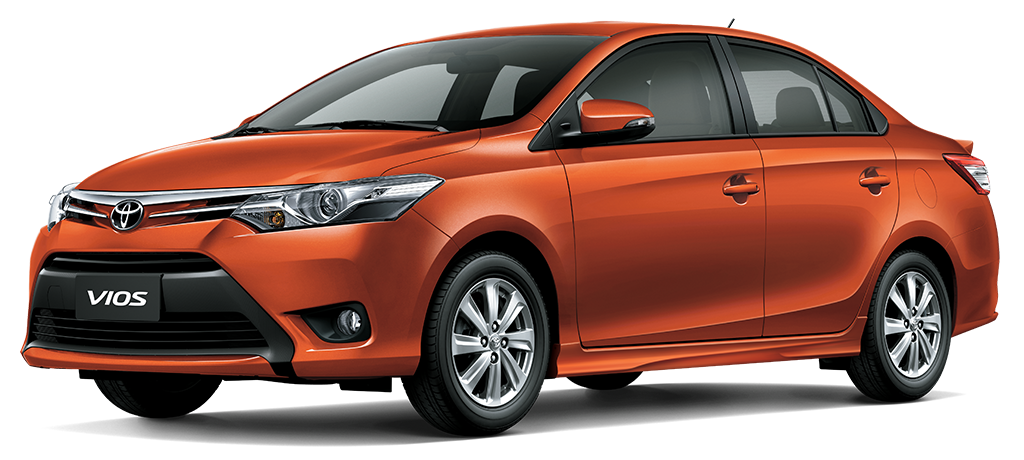Tag: business
5 Ways to earn money using your car
By Randell Tiongson on September 11th, 2016According from the Chamber of Automotive Manufacturers of the Philippines, Inc. (CAMPI) and Truck Manufacturers Association (TMA) statistics on car ownership, there has been a 27.6% increase in the first quarter of 2016 in terms of car purchases in the country. With down payments as low as P25,000 to P50,000 coupled by historic low interest rates, more Filipinos now have the convenience of owning a car that can help them get around.
Most people think that cars are depreciating assets but if you utilize your car, it can be a big income generator for you. You just have to be creative on finding income opportunities with your car.
Here are some ways to generate income from your car:
Register your car to an online transportation network
This way of monetizing your car is beneficial both for you and for passengers who are looking to have convenience while commuting. There are a lot of online transportation networks like GrabCar, Uber, or Wunder that you can join in order to get commissions based on the volume of serviced passengers.
Just remember to register your vehicle at the online transportation network, attend their orientations, and get the appropriate insurance so you can get the most out of your car insurance. Most insurers will not grant a claim when the insurance used is for a private vehicle.
Be a tour guide
This is an income stream that you can do over the weekend. Just determine the areas you are most familiar with and make itineraries that your customers can choose from.
Choose unique routes in the city which you think get many customers, such as a food trip route or a Pokestop tour. You can advertise your services through your friends and family, Facebook groups, and online forums.
Rent out your car
You can choose to rent out your car to either only people you know or through inquiries you get online. The good thing about this is that you can earn passive income here and also utilize your car if it was just sitting in your garage for the longest time.
What you can do to make sure that your car is safe is get a security deposit or a collateral so that the borrower will not be able to steal your car.
Downgrade your vehicle
This can be done through selling your current car and buying one with a lower fair market value. For some, it can be a last resort because their car is their priced possession. This can also save you money in the long run through cheaper car repairs and maintenance. The premium of your car insurance will also go down once you do this.
Offer carpooling
You can bank on some people to only trust a driver they know. You can offer to drop off your neighbors, their kids, and other people in the area to their schools or workplaces for a fee. Just make sure to compute your expenses so you can price this right.
This is not a common practice for Filipinos since they’ll see this more as a favor you can do for them. Make the benefits of carpooling and your commitment evident so they will agree to your service.
Use your car as a moneymaker
Don’t look at your car just as a depreciating asset. You can also capitalize on it to bring you extra cash by these tips which can surely get in additional income for you in the long run.
Where to put your money
By Randell Tiongson on February 3rd, 2013Question: Where should I put my money? In a bank, property, business or stocks?—Miccael Ibarra Naig via Facebook
Answer: I always believe that investing is a great idea and I pray that all Filipinos think and act the way you do. Before I answer your question, I encourage you to first consider three things: your investment objective (the reason why you are investing), time frame (how long you will keep the investment) and risk tolerance. It is critical that you know these three things before even selecting an investment option.
There is no such thing as a “best” investment. The investment instruments you mentioned have their advantages and disadvantages, their own merits and flaws. Let me discuss those choices that you are considering.
 Banks are the most popular choice of many. Banks are everywhere and this makes depositing your money in banks a convenient option. When you say “bank,” I’m assuming that you are referring to traditional bank products like savings accounts and time deposits. These bank products are among the most liquid investments you can make and the risks are also among the lowest. The downside, however, are the yields. They may be the safest options but they give the lowest returns. As they say, low risk, low returns. Having low returns, especially if below inflation rates, will erode the value of your money in the long run. Banks today offer other products other than the usual deposit products. You can invest in the instruments they offer like Unit Investment Trust Funds, mutual funds, bonds and insurance. Take time to know what your bank offers other than traditional deposit products.
Banks are the most popular choice of many. Banks are everywhere and this makes depositing your money in banks a convenient option. When you say “bank,” I’m assuming that you are referring to traditional bank products like savings accounts and time deposits. These bank products are among the most liquid investments you can make and the risks are also among the lowest. The downside, however, are the yields. They may be the safest options but they give the lowest returns. As they say, low risk, low returns. Having low returns, especially if below inflation rates, will erode the value of your money in the long run. Banks today offer other products other than the usual deposit products. You can invest in the instruments they offer like Unit Investment Trust Funds, mutual funds, bonds and insurance. Take time to know what your bank offers other than traditional deposit products.
Property is the investment every Filipino wants. Your parents and grandparents had probably told you that the best investment was land. However, saying that land is the best investment may be too ambivalent. Real estate’s greatest attraction is its being a tangible investment—you can see and use it unlike paper investments. Land usually appreciates in value giving you capital growth, or it can generate a steady flow of income through rentals and capital gains, when you decide to sell it. There are times, however, when real estate investments do not appreciate or, in some cases, their appreciation does not meet your expectations. Also, there are recurring costs in property investments such as real estate tax, administrative or association dues and common area charges. When you sell a property, you will be slapped a hefty capital gains tax on top of the broker’s fees. When you sum up all the money you need to spend during the time you are holding your real estate investment, you will realize that your gains are not as substantial as you thought it would be. Another downside in real estate investment is its cost—you need to spend a huge sum to buy land. If you decide to borrow money to finance your real estate investment, the interest that you have to pay may just eat up the gains you will make. Buying real estate because you need to live in it is another story as it is not an investment.
Business—another Filipino dream. Everyone wants to be an entrepreneur and why not? Businesses can potentially give you the highest returns. A business that succeeds can make one a millionaire, even a billionaire. There are many success stories of people who started with little but are now very wealthy because of their businesses. However, business endeavors are the riskiest among all these investment options, as they are speculative in nature. There are more businesses that fail rather than succeed, which is not encouraging for a “newbie” in the business world. Further, putting up a business requires more than just capital—competence, passion, timing, market and a lot of studying are needed when you are considering to do business.
Stocks—today’s rising star. There is so much attention to the stock market today as more and more Filipinos are being enticed into investing in equities because of its stellar performance in the last two to three years. Many investors are very optimistic with our local stock market and you will find many experts predicting that our stock market will further go up this year. Investing in equities today is also more convenient. Even with only a small amount, you can buy stocks through brokers (and also online) or through pooled funds such as mutual funds or UITFs. Let me reiterate the risk-return relationship here—high returns, high risks, and vice-versa. While it is true that the stock market has been giving extremely good returns lately, there were also times when investors lost a lot of money. The stock market is not as predictable as people think it is and all the gains over the last three years can also be wiped out in a short period of time. More so, investing in the stock market, especially when you plan to trade, requires a lot of competency and time. If you don’t have the competency and the time to trade in the bourse, you should keep your day job.
My advice is for you to consider all the pros and cons of all the investment options you mentioned and choose those that will suit your objectives the most. I also recommend that you diversify your investments. All these options have their advantages (and disadvantages), but if you have a diversified portfolio, you are spreading your risks. A common but very wise saying we often hear with regard to investing is this: “Do not put all your eggs in one basket.” Here’s an even wiser advice for you: “But divide your investments among many places, for you do not know what risks might lie ahead.”—Ecclesiastes 11:2, NLT
Appears at Inquirer



